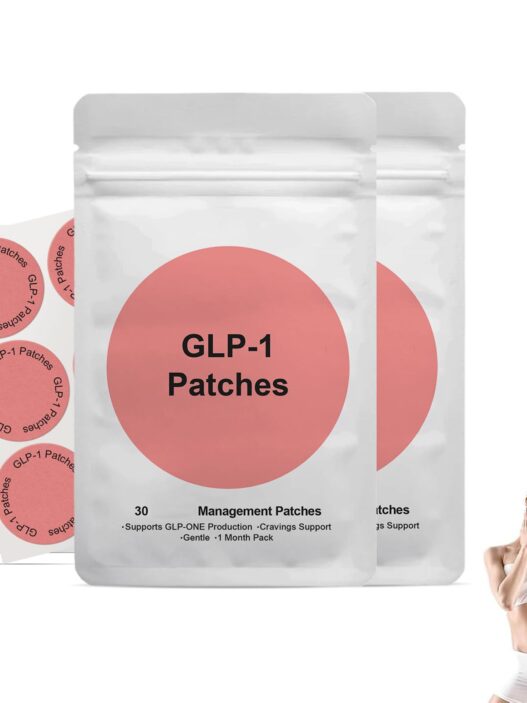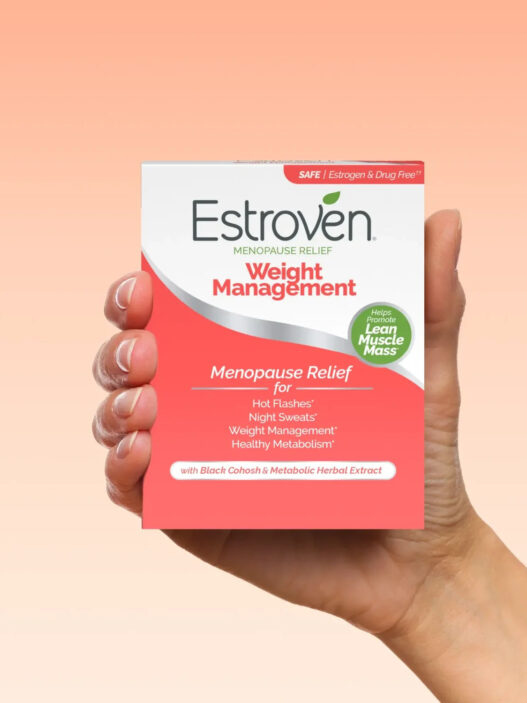For long-term weight management, science-backed controlled programs are better than trendy restrictive ones.
Contemporary weight management programs are now emphasizing behavior change, metabolic science, and scientifically backed nutrition as opposed to fast fixes.
Some of the top weight management strategies known to be adaptable, sustainable, and evidence-based are listed below.
WeightWatchers – Most Flexible Weight Loss Program
Of the official plans, WeightWatchers (now known as WW) possesses flexibility and long-term perseverance. It applies a scientifically developed “SmartPoints” system which analyzes food by assigning it a number according to their calorie, protein, sugar, and saturated fat content.
The focus is on achieving calorie limitation without diminishing essential foods. Research in Obesity and Annals of Internal Medicine has indicated that WW participants lose 5–10% body weight on average at one year and are reliant on compliance.
Technically, the program promotes behavioral self-monitoring by tracking food daily and weekly telephone calls. Its flexibility lies in the fact that it allows one to have zero-point foods like vegetables, fruits, and lean proteins.
This balance avoids metabolic plateau via maintenance of muscle mass and promotion of caloric deficit. It is best suited for persons who need a scientifically proven, flexible diet program that blends seamlessly with daily life.
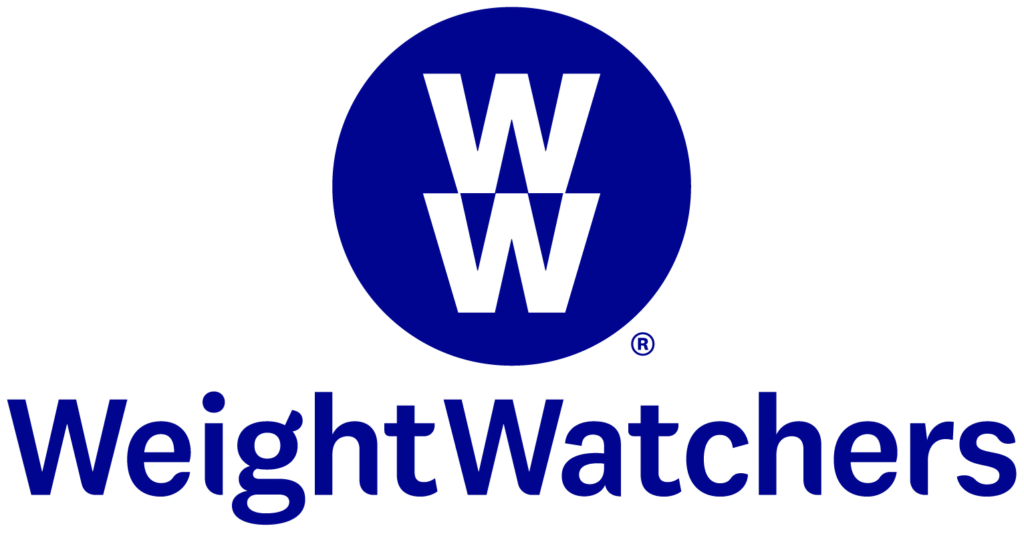
Noom – Best App for Sustainable Lifestyle Changes
Applications such as Noom combine behavior psychology with nutrition education to encourage sustainable weight management. Noom uses color coding – green, yellow, and red to categorize food as more or less healthy in terms of caloric density.
Cognitive behavior therapy (CBT) techniques underlie the program and educate users on emotional eating symptoms as well as the establishment of habits that are mindful.
A 2020 study published by Scientific Reports found that regular use of apps generated long-term weight loss and improved dietary habits after six months.
A research trial also found that tracking oneself online raises weight-loss success by as much as 30%. Technically, Noom targets caloric density reduction (kilocalories per gram food), tracking frequency by day, and levels of user engagement – three powerful predictors of weight-control success.
For individuals who need data-driven feedback and individualized coaching using mobile technology, this application provides accountability and durable habit creation.

Wellos – Best App for Recipes and Lifestyle Coaching
Wellos is one of the most recent weight loss applications incorporating nutritional learning along with interactive guidance. It targets meal planning, recipe diversity, and subtle life transformation instead of calorie dieting itself.
Customers are provided with individualized meals categorized by terms such as low-carb, plant-based, or Mediterranean diets with brief courses on metabolic well-being.
Technically, Wellos weighs in on nutritional density — focusing on foods rich in fiber, antioxidants, and lean protein in order to keep one full and metabolically efficient.
A study in the American Journal of Clinical Nutrition validates this strategy, demonstrating that diets focusing on nutrient density result in more fat loss and less inflammation than mere calorie counting.
The coaching model of the app also promotes better compliance, which is still a key consideration when it comes to healthy weight maintenance.This program is ideal for those who want education and guided meal support instead of strict calorie restriction.
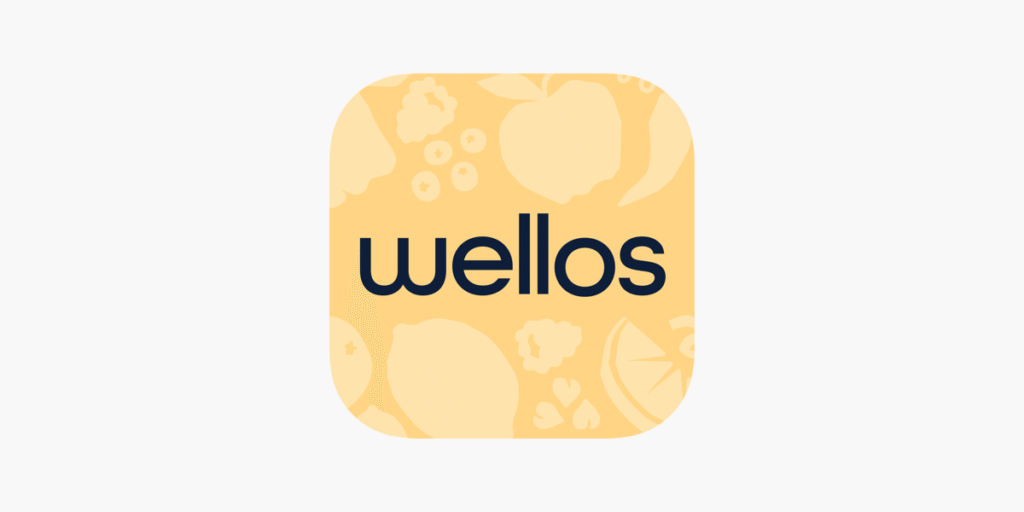
Newer Treatments Are Now Available
There are also some newer treatments that combine lifestyle change with medical management. It focuses on meal planning, recipe variety, and gradual life change rather than calorie restriction itself. Consumers receive personalized meals sorted by preference terms like low-carb, plant-based, or Mediterranean diets, along with short lessons about metabolic health.
Technically, Wellos prioritizes nutritional density – emphasizing foods high in fiber, antioxidants, and lean protein to maintain satiety and metabolic efficiency.
Research from the American Journal of Clinical Nutrition supports this approach, showing that diets emphasizing nutrient density lead to greater fat loss and reduced inflammation compared to calorie counting alone.
The app’s coaching model further enhances adherence, which remains a critical factor in maintaining a healthy weight. This is suitable for individuals who desire education and structured meal assistance in lieu of strict calorie counting.
Calibrate – Best Online Weight Loss Program with Medication
There are also some newer interventions that integrate lifestyle modification with medical treatment. Calibrate is an example that unites metabolic coaching with FDA-approved weight-loss medications, primarily GLP-1 receptor agonists like semaglutide.
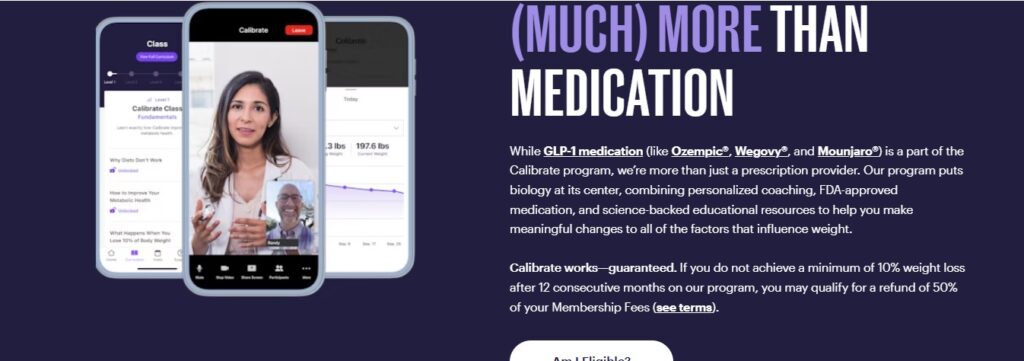
These drugs work by increasing satiety hormones, slowing gastric emptying, and reducing signals of hunger in the brain. According to clinical trials in The New England Journal of Medicine (2021), semaglutide patients, combined with lifestyle counseling, lost on average about 15% of their body weight after 68 weeks.
Calibrate’s system relies upon this research, combining pharmacological treatment with individualized diet, exercise, and sleep optimization regimens.
Technical considerations include monitoring for side effects such as nausea, medical oversight, and balanced nutrient intake to prevent rebound weight gain.
For individuals with a greater BMI or metabolic dysfunctions, these combined approaches yield substantial and clinically proven results.
Mayo Clinic – Best for Diabetes and Metabolic Health
Mayo Clinic Diet is designed for individuals with type 2 diabetes or pre-diabetes. The structure of the diet is based on gradual habit modification, with more emphasis on increased intake of high-fiber foods, fruits, vegetables, and whole grains and reduced consumption of saturated fats and refined sugars. The diet aims to balance blood sugar and create gradual weight loss via a caloric deficit.
Clinical data in Diabetes Care indicate that dietary intake of fiber (above 30 g/day) increases insulin sensitivity and the feeling of satiety, leading to sustained weight loss without muscle catabolism.
Mayo Clinic Diet’s “Lose It” and “Live It” phases help formulate healthier food habits and maintenance over time.
Technically, its success is attributed to improved macronutrient partitioning (45–50% carbohydrates, 25–30% fat, 20–25% protein) and behavioral reinforcement rather than short-term deprivation.
It’s best for people who need medical-level guidance for metabolic health.
Conclusion
The optimal weight loss program is dependent on individual needs – flexibility, medical needs, psychological factors, and lifestyle habits. Programs like WW highlight flexibility and social support; electronic programs like Noom and Wellos highlight behavior change and nutrition knowledge; while physician-directed models like Calibrate offer evidence-based pharmacologic treatment.










